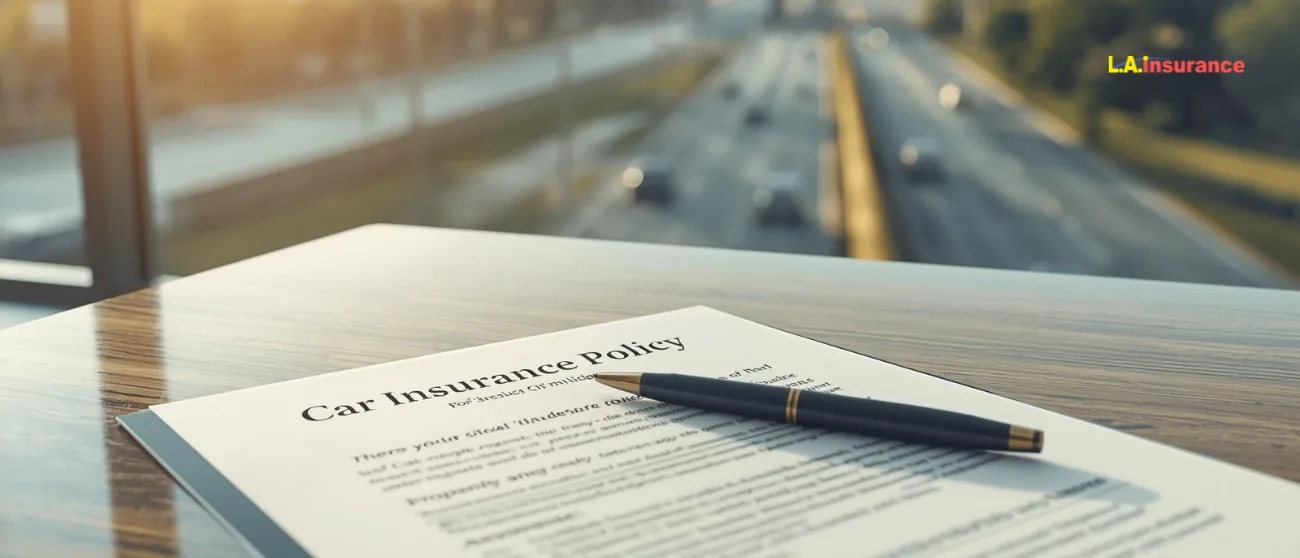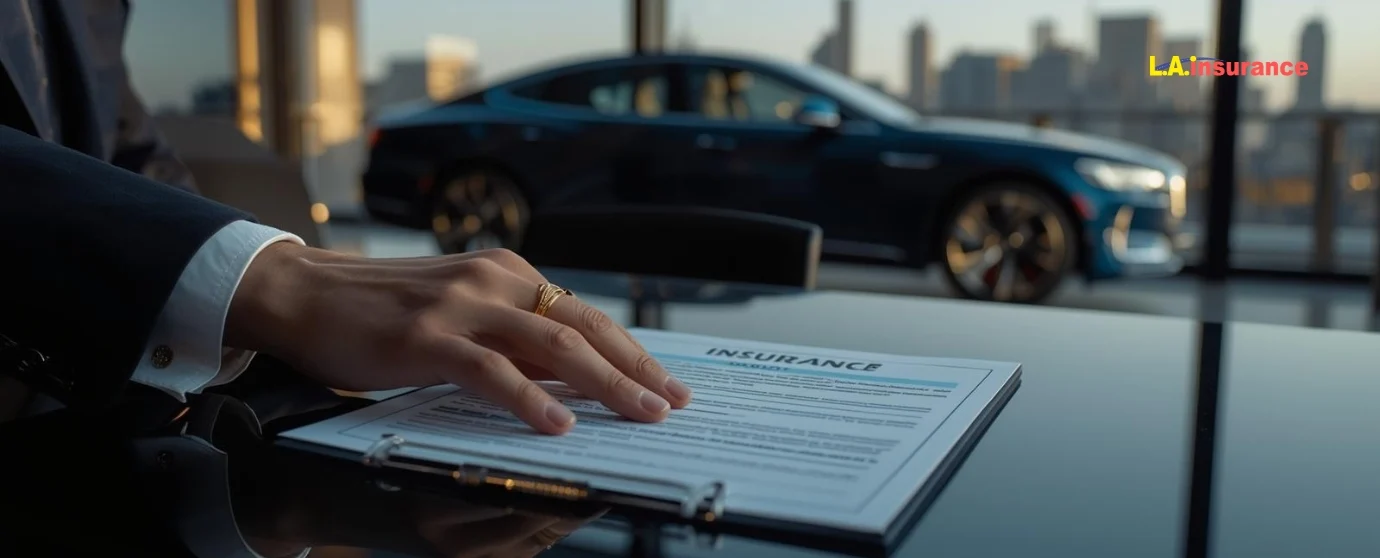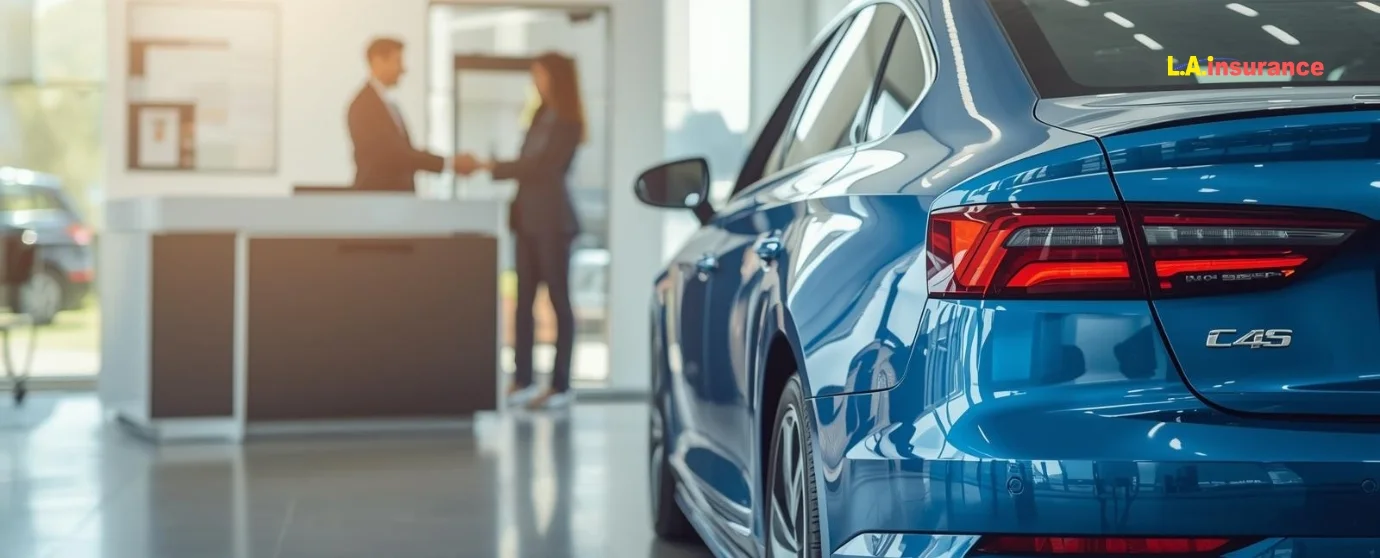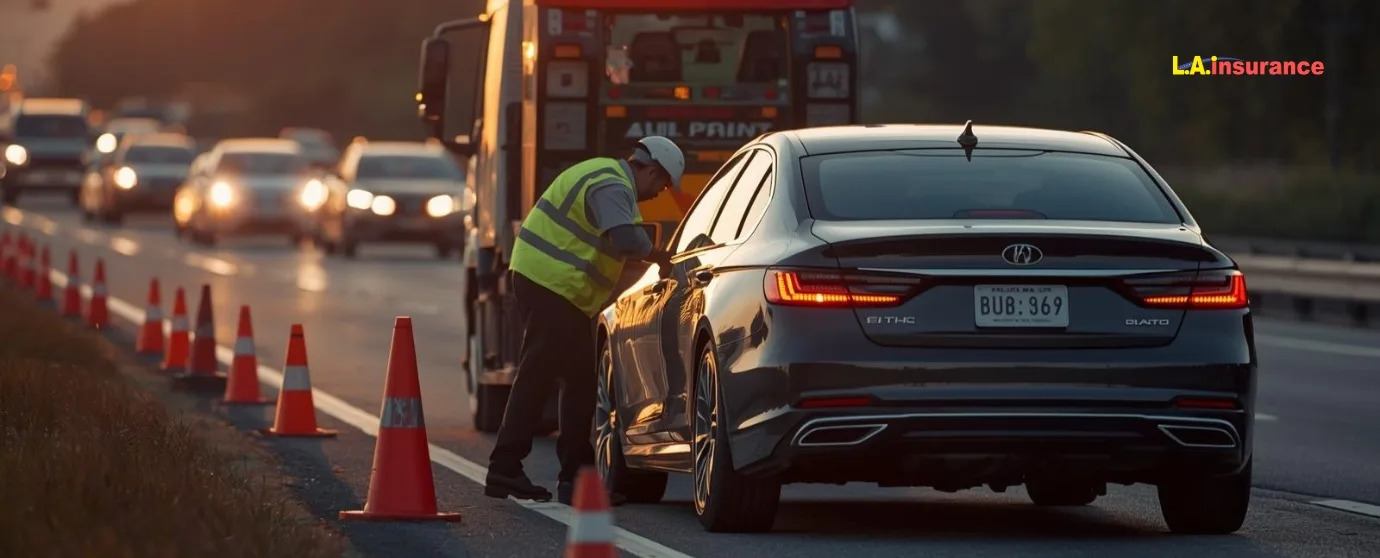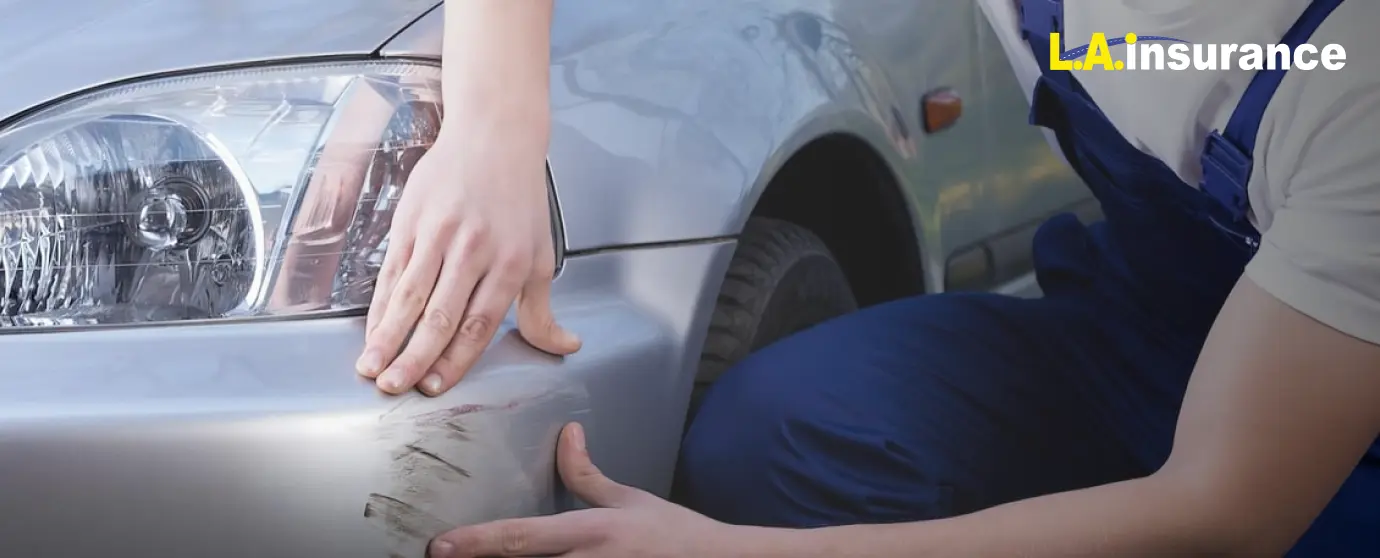
Publish Date: 04-09-2024
Auto Insurance
Last Updated: 04-01-2026
Does Car Insurance Cover Scratches and Dents?
Your car faces daily risks, from light scratches to noticeable dents. These minor damages can happen after accidents, low-speed collisions, or contact with other vehicles, objects, or even animals. Over time, even small imperfections can hurt your car’s appearance and reduce its resale value.
Because of that, many drivers ask, “Does car insurance cover scratches and dents?” The answer is yes, but only if you carry the right coverage. Auto insurance can cover scratches, dings, and dents, depending on the type of policy you have and how the damage occurred. Liability-only insurance does not pay for damage to your own car.
That’s why it’s important to understand how your auto insurance policy works when it comes to minor damage like scratches, dings, and dents. Let’s break it down.
Does Car Insurance Cover Minor Damage?
Minor damage refers to small, mostly cosmetic issues that affect your car’s appearance and rarely its functionality. This includes scratches, dings, dents, or paint marks caused by everyday incidents such as someone keying your car, low-speed collisions, or certain types of road debris. For example, if a rock flies up and dents your car or someone scratches the paint in a parking lot, these are usually considered minor damages.
Car insurance can cover these types of damage, but it depends on your policy. The type of coverage you carry and your policy limits determine whether you’ll be reimbursed. If you have comprehensive coverage, it generally protects your car from non-collision events like vandalism, falling objects, or hail that can cause scratches or dents.
If you carry collision coverage, your policy may pay for minor damage that results from a collision. This includes accidents involving another vehicle or hitting a stationary object such as a pole, fence, or curb.
However, liability insurance or state-minimum coverage does not cover minor damage to your own car. Liability coverage only pays for injuries or property damage you cause to others. Because of that, having the right optional coverage is the key factor in whether scratches and dents are covered.
Also Learn: Does Auto Insurance Cover Drunk Driving Accidents?
Does Car Insurance Cover Scratches and Dents?
Yes, car insurance can cover scratches, door dings, and dents, but the level of coverage depends on the type of insurance you carry and how the damage happened. As mentioned earlier, cosmetic damage like scratches and dents is usually covered under comprehensive or collision coverage when the situation qualifies.
Because scratches and dents can happen in different ways, the coverage that applies depends on the cause of the damage. In general, the following coverages may protect your car against minor damage:
- Collision coverage
- Comprehensive coverage
- Uninsured motorist property damage (UMPD)
- Another driver’s liability coverage, if you’re not at fault
Auto Collision Coverage
Collision coverage pays for damage to your car caused by a collision with another vehicle or an object. This includes accidents, hitting another car, or striking stationary objects like a pole, curb, or fence.
If your car is scratched or dented during an accident, collision coverage can help pay for repairs regardless of who was at fault. For example, if you back into a pole or are involved in a low-speed accident that leaves dents or scratches, collision coverage would typically apply. Keep in mind that your deductible applies before coverage kicks in.
Auto Comprehensive Coverage
Comprehensive coverage protects your car from damage not caused by a collision. This includes events such as vandalism, theft, falling objects, severe weather, or hitting an animal. If your car is scratched or dented due to one of these non-collision events, comprehensive insurance will usually cover the repair costs, subject to your deductible.
For instance, if someone keys your car in a parking lot or a tree branch falls on it during a storm, comprehensive coverage can help pay for the damage. In most states, what’s commonly called full coverage includes both comprehensive and collision insurance. If the cost to repair the damage is less than your deductible, filing a claim generally won’t make sense. The same rule applies to collision coverage.
Here's what comprehensive car insurance covers:
- Theft
- Vandalism
- Fire
- Windshield damage
- Damage from a collision
- Falling objects
- Natural disasters
- Property stolen from your car
- Falling Trees/Limbs
- Hitting an Animal/Animal Damage (e.g., hitting a deer)
- Riot
- Hail
- Severe weather events (windstorms, hail, floods, Earthquake)
- Accidental damages
- Damaged glass
- Medical expenses after an accident
- Towing costs
- Consumables cover
Relevant Article: Does Auto Insurance Cover Cracked Windshield?
Uninsured Motorist Property Damage (UMPD)
Uninsured motorist property damage can help pay for repairs if your car is damaged by a driver who does not have insurance. If an uninsured driver hits your car and causes scratches or dents, UMPD may cover the repair costs, depending on your state and policy. For example, if an uninsured driver sideswipes your car and leaves the scene, UMPD could help cover the damage. Availability, coverage limits, and deductibles vary by state and insurer, so this coverage is not included in every policy.
Auto Liability Coverage (If You’re Not at Fault)
Liability coverage pays for damage you cause to others when you’re at fault. However, if another driver is responsible for the accident, their liability insurance should cover damage to your car, including scratches and dents. Property damage liability is the part of the at-fault driver’s policy that pays for repairs to your vehicle. For example, if another driver rear-ends you and dents your bumper, their property damage liability coverage would typically pay for the repairs. If the at-fault driver leaves the scene, you can find his auto insurance and may still be able to file a claim through your own collision coverage or UMPD, depending on what your policy includes.
Different Scenarios When Your Car Insurance Covers Scratches and Dents
Here's a table that discusses different scenarios when your car insurance covers scratches and dents:
Scenario | Type of Coverage | How It Works |
Collision with another vehicle or object | Collision Coverage | If your car gets scratched or dented due to an accident with another vehicle or an object (e.g., a tree, or fence), collision coverage will pay for the repairs, regardless of who is at fault. |
Vandalism or Intentional Damage | Comprehensive Coverage | If someone intentionally damages your car, like keying it or breaking a window, comprehensive coverage will cover the cost of repairs. |
Hitting an animal (e.g., Deer) | Comprehensive Coverage | If your car is scratched or dented after hitting an animal, comprehensive coverage will help cover the repair costs. |
Collision Coverage/UMPD | If your car is scratched or dented in a hit-and-run accident, collision coverage or UMPD can cover the repair costs, depending on your policy. | |
Another driver at fault | Other driver’s liability coverage | If another driver is at fault in an accident that leaves your car scratched or dented, their property damage liability insurance will cover your repair costs. |
Road debris causing damage | Comprehensive Coverage | If road debris like rocks or gravel flies up and scratches or dents your car, comprehensive coverage can help with the repairs. |
You bump into another car and you’re at fault | Collision Coverage | If you accidentally collide with another car and you’re at fault, collision coverage will pay for the repair cost to your own car, including any scratches or dents. |
Parking lot mishap | Collision Coverage | If your car is scratched or dented in a parking lot accident, collision coverage will pay for the damages. |
Fire or Explosions/Flood Damage/Snow or Ice | Comprehensive Coverage | Any minor damages from natural disasters will be covered by your comprehensive insurance policy. |
Situations When Car Insurance Doesn’t Cover Scratches and Dents
Car insurance can greatly help when dealing with unexpected minor damages, but it doesn’t cover every situation. You have learned when and how car insurance covers dents and scratches. Similarly, you should be aware of situations when your car insurance policy might not compensate for scratches or dents. This way, you can avoid any misunderstanding with your car insurance provider and potential out-of-pocket expenses. Below are some common scenarios where your car insurance may not cover these types of damage.
Normal Wear and Tear
Your car insurance generally doesn't cover damage that results from normal wear and tear. Scratches, dents, or door dings that naturally occur over time, such as those from parking lot dings, minor abrasions from road debris, or fading paint, are not considered sudden or accidental. These damages are expected as part of your vehicle ownership and maintenance. So, they fall outside the scope of insurance coverage. It's typically the owner's responsibility to repair any damage resulting from regular wear and tear, which is considered a normal part of owning a car.
Lack of Comprehensive and Collision Coverage
If you have liability insurance only, unfortunately, you won’t be covered when it comes to scratches and dents. Because your liability coverage is designed to pay for damage you cause to other people’s property or injuries you cause in an accident. It doesn’t pay for damage to your own car. Therefore, for protection against scratches/dents, you need to have the right coverage, particularly comprehensive and collision insurance. Lack of these coverages means insurers won’t pay for the damage to your car from incidents like minor collisions, road debris, falling trees, or vandalism won’t be covered.
Damage Below the Deductible
Even if you have comprehensive or collision coverage, your policy may not pay for minor scratches or dents if the repair cost is less than your deductible. For example, if your deductible is $500 and the cost to fix the scratch is $300, you’ll have to pay out of your pocket. In this case, your insurance company won’t cover the repair because the damage is too minor.
Negligent Behavior
If your own negligent behavior causes a scratch or dent, your insurance company may not cover it. Negligence might include situations where you carelessly back into an object, drive too close to another vehicle, allow items in your garage to fall onto your car, or you might get angry about getting a ticket and kick your vehicle. If it’s determined that the damage resulted from your reckless or careless action, your insurer might deny the claim.
Unknown or Unreported Damage
If you don’t know when and how the damage occurred, your insurer may be hesitant to cover it. Like any insurance policy, car insurance also usually covers specific incidents with a clear cause and timeline. So, if you discover a scratch or dent all of a sudden and can’t explain when it happened, or if you didn’t report it immediately, your claim could be denied.
Lapse in Filing a Claim
It’s always the best decision when you report to your insurer immediately about an accident whether it’s minor or severe. Many insurance companies have a specific timeframe within which you must file a claim after the damage occurs. If you fail to meet this deadline, your claim might get denied. Conversely, filing a claim instantly ensures that the insurer can investigate and determine the extent of coverage.
Violation of Policy Terms
If you’re found to be in violation of your insurance policy, your claim for scratches or dents could be denied. Failing to report an accident within the requested timeframe, providing false information to your insurer, or using your car in a manner not covered by your policy (e.g., using a personal car for commercial purposes without the proper coverage). Besides, if you drive on another country’s border and get into a crash there, you might not be covered for the damages. Unless you purchase a country-specific policy.
Damage Is Too Old
Insurance doesn’t cover pre-existing damage or scratches and dents that are too old. If the damage was already present before you purchased your insurance policy, or if it’s been left unrepaired for a long time, your insurer may not cover the costs to fix it. Note that insurance companies are responsible for damage that happens after your policy starts.
Can You Claim on Car Insurance for Scratches and Dents?
Yes, absolutely. You can claim for scratches or dents if you have a specific policy to cover these types of costs. As we previously stated, comprehensive and collision coverage can cover most incidents related to scratches or dents. Anyway, before filing a claim you must consider a few factors. For instance, you should consider the deductible and whether the repair cost justifies it.
Here's when you should consider filing a claim:
- If the scratch is too deep
- If the repair costs are high
- If another driver caused the damage or another driver is at fault
- If the deductibles and repair costs justify
Of note, acting quickly is important. So, report the damage to your insurer within a few days to ensure a smooth process. Reporting promptly allows the insurance company to assess the damage accurately.
How to File a Claim for Scratches and Dents?
If your car has suffered from minor damages such as scratches, dents, door dings, and so on, here is how you can file a claim:
Step 1: Call the police first if accidents occur due to vandalism, hit-and-run cases, or accidents.
Step 2: Document the damages like taking clear photos of the scratches and dents from multiple angles. Note the date and time of the incident.
Step 3: Visit a repair shop to get an estimate for the repair costs
Step 4: Have your car insurance policy number ready and contact your insurance agent or insurance company directly.
Step 5: After you submit your claim, you’ll receive a claim number through which you can track the progress of your claim report.
Step 6: Receive your claim settlement after completing the process.
Is Filing a Car Insurance Claim for Scratches, Dings, or Dents Worth It?
Whether it’s worth filing your car insurance claim for minor damage or not depends on a few factors. First, evaluate the repair costs. If the damage is minor and the repair cost is lower than your deductible, it might be better to pay out of your pocket. A deductible is the amount you pay before your insurance starts covering a claim.
So, for instance, if fixing a small dent cost $200, but your deductible is $500, filing a claim wouldn’t make sense because your insurer won’t cover the cost until you meet your deductible.
On the flip side, if the damage is severe and the repair costs are significantly higher than your deductible, filing a claim might be worth it. For instance, if your car gets keyed and the repairs amount to $3000, and your deductible is $500, it makes financial sense to claim. However, keep in mind that filing a claim can affect your insurance rates. If the damage is your fault, it could lead to an increase in your premiums. You can learn more about how much does car insurance go up after an accident.
Does Car Insurance Cover Dents and Scratches: The Bottom Line
So the bottom line is that car insurance can cover dents and scratches, but it depends on the type of coverage you carry and how the damage occurred. Collision and comprehensive coverage usually cover these damages, but not if they result from normal wear and tear, negligence, or old damage. You should always consider your deductibles and whether the cost of repairs is worth filing a claim. Also, to keep your premium low even after your claim, consult the most affordable insurance agency.
Read Related Articles:
Frequently Asked Questions (FAQs)
When Should I File a Claim for Scratches or Dents?
You should consider filing a claim if the damage is extensive, costly to repair, or caused by another driver. If the repair costs exceed your deductible, it might be worth filing a claim.
What Types of Car Insurance Cover Scratches and Dents?
Collision and comprehensive insurance are the primary types that cover scratches and dents. Collision coverage applies if you hit another vehicle or object, while comprehensive covers non-collision events like vandalism or hails.
How Much Will My Insurance Go Up After Scratching Someone's Car?
If you scratch someone’s car and file an insurance claim, your car insurance premiums may increase about 10% to 20%. However, the amount may vary depending on your car insurance company, coverage limit, claim history, driving history, and so on. Typically, this increased rate could last for three years.
Are Scratches Expensive to Fix?
Yes, if the scratch is deep or extensive, it can be quite expensive. However, the cost depends on factors such as repair shop, vehicle type, the type of paint used, and labor involved. For instance, a simple touch-up might cost around $150 to $300, but more severe scratches that require bodywork and full panel repainting can exceed $1000.
Does Your Car Insurance Cover Damage by Bugs or Pests?
No, car insurance typically does not cover damage caused by bugs or pests. Damage from these sources is considered preventable and falls under maintenance issues. Since these incidents aren’t covered by collision or comprehensive insurance, you’ll need to pay out of your pocket.
Does Auto Insurance Cover Damage from Road Debris?
Yes, auto insurance can cover damage from road debris if you have comprehensive coverage. This type of insurance particularly covers non-collision-related damage. Think of a situation, when a rock hits your windshield or debris damages your vehicle’s body. In this case, you’ll get reimbursement as long as you have glass coverage. However, you’ll need to pay the deductible before the insurance covers the remaining costs.
Does Auto Insurance Cover Your Car Being Keyed?
Yes, if your car is keyed, comprehensive auto insurance is usually activated. With this coverage, you will be safeguarded against vandalism including keying. After paying the deductible, your insurance should cover the cost of repairs.
Editorial Disclaimer
The information provided on this blog is for general informational purposes only and does not constitute professional insurance, legal, or financial advice. Coverage and rates are subject to individual eligibility, underwriting guidelines, and state availability. For specific questions regarding your policy or to get an accurate quote, please contact a licensed L.A. Insurance agent directly. We're an independent agency and not a direct insurance carrier. For more information on how we operate and handle your data, please see our Terms and Conditions and Privacy Policy.
Tag :
cheap car insurance
Auto insurance
best auto insurance
